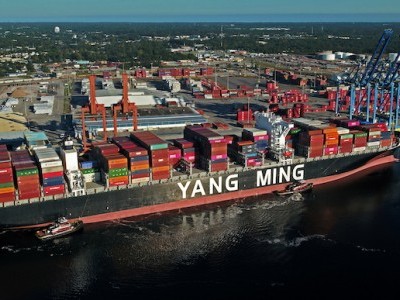Maritime Industry Disrupted: VesselBot’s advanced analytics reveals unseen truths in maritime emissions
VesselBot, a leader in transportation emission analytics, unveiled today the "Decoding Maritime Emissions – Trends and Insights from the first half of 2024", which offers cutting-edge insights into global shipping emissions for the period January-June 2024. The report utilizes VesselBot's unique primary data collection and advanced analytics to provide the most accurate and actionable emissions data in the industry.
The maritime sector faces significant challenges in accurately measuring and reporting emissions. Traditional methods rely heavily on estimates and averages, leading to potential miscalculations and hindering effective decarbonization efforts. This lack of precision has made it difficult for shipping companies, port authorities, and policymakers to identify true emission hotspots and implement targeted reduction strategies.
VesselBot's revolutionary approach directly addresses these issues. "Our technology utilizes primary data from direct measurements, ensuring unmatched accuracy," explains Constantine Komodromos, CEO & Founder of VesselBot. "We've developed an innovative method to analyze engine usage, offering granular insights into port efficiency that were previously unattainable."
This precision, combined with real-time monitoring capabilities of major trade lanes, allows for immediate detection of emission hotspots. VesselBot's analysis goes beyond raw data, providing stakeholders with clear, actionable pathways to reduce emissions and optimize operations.
Key findings from the report include:
• A continued decline in CO2 emission intensity since 2021, indicating improved fleet and voyage efficiency. However, total CO2 emissions increased in 2024 due to external factors such as geopolitical tensions.
• Detailed analysis of major trade routes, revealing the impact of the Red Sea crisis on emissions as ships reroute around Africa.
• Port-specific emission insights, uncovering inefficiencies in major ports like Rotterdam, Long Beach and Singapore.
"As the maritime industry grapples with ambitious net-zero targets, the need for accurate emissions data has never been more critical," C. Komodromos, added. "Our one-of-a-kind Supply Chain Sustainability platform is empowering the entire supply chain sector to make informed decisions that drive real progress in decarbonization efforts."
Similar Stories

Hapag-Lloyd WDS/WID surcharge to the U.S. East Coast and Gulf ports
View Article
MSC schedule update – Trade Asia to USA West Coast
View Article
Stena RoRo takes delivery of the battery hybrid vessel Guillaume de Normandie
View Article
LATAM is once again part of the Dow Jones Sustainability Index
View Article
Indian Register of Shipping reflects on 2024 and sets ambitious goals for 2025
View Article
Yang Ming announces 2025 Trans-Atlantic services
View ArticleGet the most up-to-date trending news!
SubscribeIndustry updates and weekly newsletter direct to your inbox!





